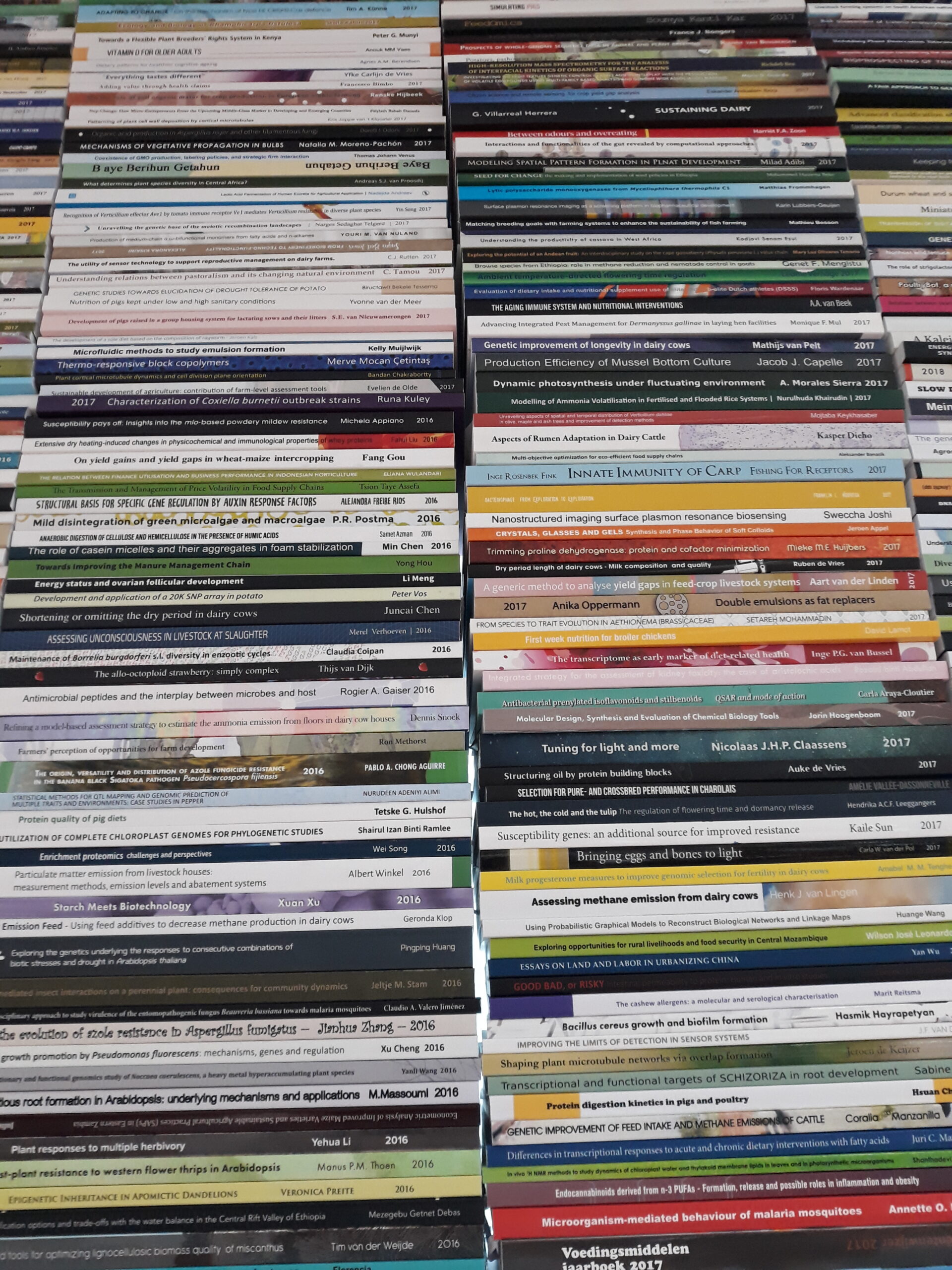How are we going to feed a world population of nine billion people in 2050? Students tackled this important question during the WUR Student Challenge ReThink Protein, which was run this year for the first time. Resource talked to three of the finalists about their solutions.
‘Rescue Morama beans from obscurity’
‘Our idea is to use a local solution to tackle a global issue,’ says Mathilde Annequin, a student of Nutrition and Health Engineering at Unilasalle Beauvais, France. She and her team looked into the potential of morama beans, which are indigenous to most parts of southern Africa. ‘These beans are amazing: they thrive in semi-arid regions like the Kalahari desert and require little water. They are also high in protein, comparable to soy beans, and contain healthy oils.’
Despite these benefits, the beans have not been domes- ticated and are an underutilized food source, limited to rural southern Africa. ‘We want to rescue morama beans from obscurity by developing nutritious and protein-rich products, using simple and cost-effective processing techniques that can be replicated even in remote African regions.’ The team made a flour from the beans and used this to make cookies and porridge. ‘When you roast the beans they have a nice nutty flavour.’
The team is now in touch with people in Botswana who are working on a pilot project for domesticating the beans. The students are already thinking about their marketing strategy. ‘I’m from West Africa and another teammate is from Botswana, so we know a bit how the market works.’
‘Make use of the experience in the silk industry’
‘Insects are often mentioned as a novel sustainable protein source,’ says Anjani Nayak, an Erasmus exchange MSc student at WUR and a member of the SWAP (SilkWorm As Protein) team. ‘To rear them requires new techniques to be developed. But there is an industry that already has thousands of years of experience: the silk industry. After the silk is har- vested, the pupae, about 250 million kilos of them per year, are used as fish food or fertilizer. We have found a method to process the pupae into a protein- and iron-rich powder that contains around 70 per cent protein and keeps for a long time.’
The team’s initial idea was to use the powder for human consumption, perhaps for malnourished chil- dren in India. ‘But we realized that to do that the production method would have to be very cheap. Also, the legal regulations are unclear and we discovered that consumer acceptance in India is very low.’ So they decided to focus on the pet food industry first. ‘In Europe there are 360 million pets and the number of pets is still increasing. The same goes for India, due to increasing wealth. Insect-based pet foods are a good option for animals with allergies and also for owners that want to feed their pet a sustainable diet. We have found a silk grower who is willing to support us by pro- viding pupae and a place to process them. If we are able to establish a market in the pet food industry, then in a few years, if acceptance grows, we might be able to take the step towards products for human consumption.’
‘Involve the meat industry in the protein transition’
‘We sometimes jokingly compare ourselves with Tinder,’ says Yentl te Riele, Master’s student of Communication, Health and Life Sciences at WUR and a member of the Protein Forward team. ‘We are convinced that the food of the future is plant-based. We can see that transition tak- ing place, but we think it could go a lot faster if all the parties in the food industry, from the innovative startups to the big companies, worked together more. At present their interests tend to clash. Take the occupation of the pig farm in Boxtel by vegans, in response to which farmers lit the barbecue.’
With their startup Protein Forward, the team hopes to break down the divide by bringing the different par- ties together, in round table discussions, for instance. ‘For the protein transition, we need all the parties. It requires a holistic approach. We think you shouldn’t turn your back on the meat industry, but get them on board in the developments.’ Te Riele admits that this is no easy task. ‘Not everyone is ready for a transition, but the meat industry is seeing profits falling and at the same time a gap in the market that it doesn’t quite know how to respond to. On the other hand, there are lots of young, innovative small companies that might have plenty of knowledge and ideas, but don’t have the capital to grow. Protein Forward works like a kind of Tinder for those parties. With the big difference that you don’t have to swipe 100 times in the hope of a match, because we look for the right match in our net- work.’
‘Morama beans grow well in dry regions such as the Kalahari’
| ReThinking Protein |
|---|
| The WUR Student Challenge: ReThink Protein is an international competition for individual students, student teams and student startups. Students are challenged to come up with a business plan (the ‘ideation’ category) or a prototype with which we could provide the growing world population with protein in a sustainable, healthy and affordable manner. The teams submitted their draft ideas in Janu- ary this year, and then developed them further with the support of coaches from the industry. The finale was held on 27 June. Team SWAP (SilkWorm As Protein) won in the Ideation category, and team GrainGain won in the Prototype category. GrainGain used a residue from beer brewing to make protein powder which can go into products such as healthy snacks. |




